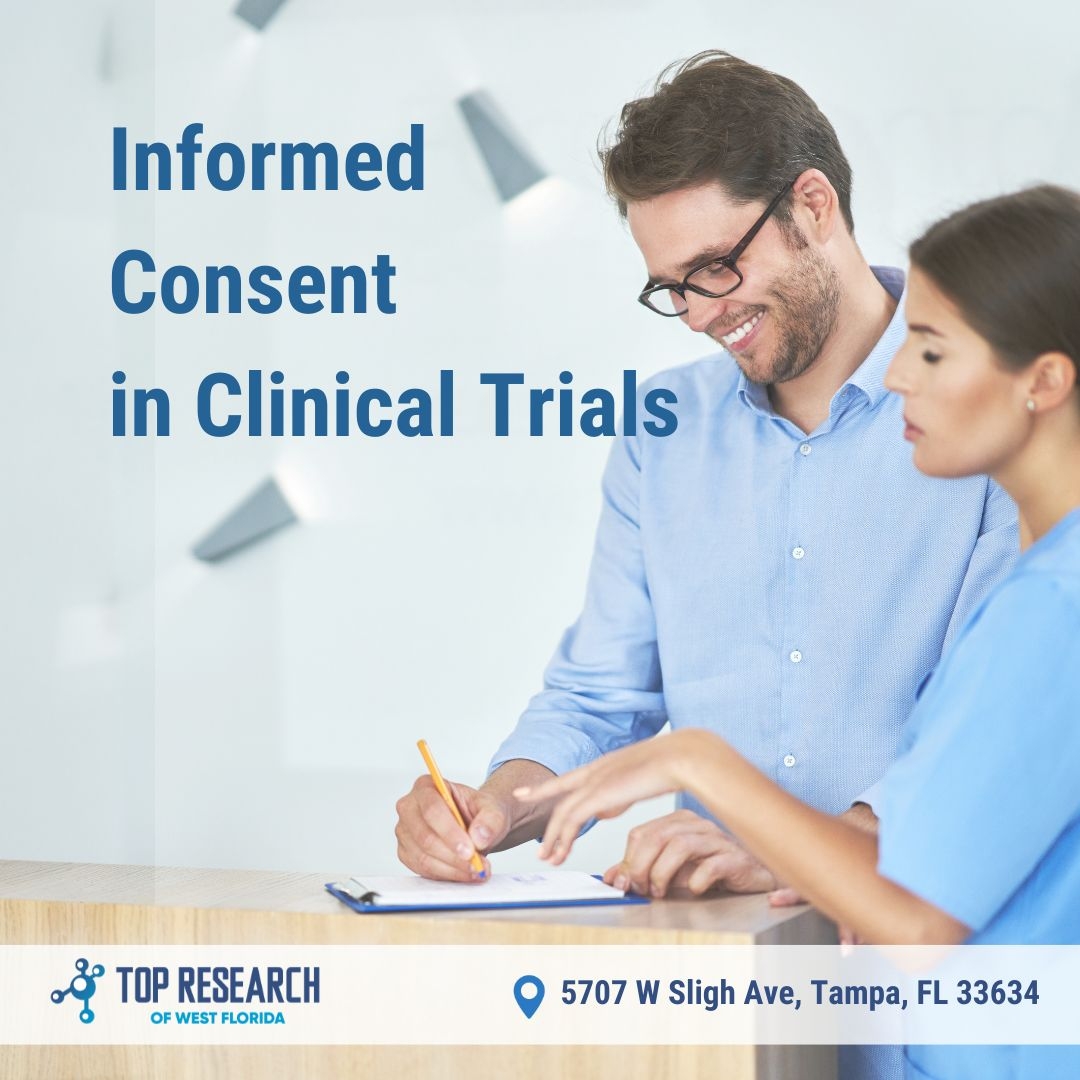TAMPA, FL - Top Research of West Florida has published a guide on informed consent in clinical trials. This resource explains the ethical, legal, and procedural standards that ensure participants are fully informed before joining a study. Available on their website, the guide aims to educate patients, researchers, and healthcare professionals.
Informed consent is a foundational element of ethical clinical research, ensuring that participants are fully aware of the potential risks, benefits, and alternatives before agreeing to take part in a study. The guide explains the structured protocol for information sharing, conversation, and documentation in compliance with the United States Code of Federal Regulations and Good Clinical Practice (GCP) standards.
The Role of Informed Consent
The guide emphasizes informed consent as a cornerstone of ethical clinical research, protecting participants' rights and well-being through a clear explanation of the study’s purpose, protocols, and potential implications.
Top Research of West Florida emphasizes tailoring information to participants’ literacy levels and primary languages, ensuring inclusivity through certified translations, interpreters, and culturally sensitive materials. Provisions for vulnerable populations include child assent alongside parental consent and accommodations like large-print documents or Braille for individuals with disabilities. For pregnant women, ethical considerations prioritize autonomy and safety, ensuring they are fully informed participants in the consent process.
Balancing Ethics and Regulation
The guide discusses the complex interplay between ethics and regulatory compliance. Overseen by Institutional Review Boards (IRBs) and the Office for Human Research Protections, informed consent protocols are designed to protect participants from coercion, undue influence, and conflicts of interest. Detailed explanations of risks, potential injuries, and protections such as insurance coverage are central to the consent process.
In research areas such as oncology, psychiatry, and stem cell studies, the ethical demands are heightened. Studies involving investigational new drugs or therapies for diseases like cancer often include additional layers of data monitoring, randomization, and safety protocols. Informed consent is not a one-time event; participants are updated throughout the trial on new findings, risks, or changes to the study protocol to maintain their understanding and agreement. Ongoing consent not only keeps participants informed but also ensures their continued agreement as new risks or findings emerge, safeguarding their autonomy throughout the study.
Addressing Challenges in Clinical Research
The guide addresses challenges such as managing protected health information (PHI) and personal data. It highlights measures like anonymized data collection, secure databases, and adherence to HIPAA regulations to protect participants' health information and maintain confidentiality.
The publication also discusses ethical considerations in emergency situations where obtaining informed consent may not be feasible. In such cases, researchers must seek waivers or other legal exemptions, balancing the urgency of medical research with respect for patient autonomy.
Enhancing Patient Understanding
To promote informed decision-making, the guide emphasizes the value of patient education and conversation. Researchers are encouraged to answer participant questions comprehensively and provide supplemental materials, such as a PDF copy of the consent form or explanatory addendums. The use of visual aids, simplified language, and accessible educational materials is also recommended.
The guide also discusses the role of witnesses and legal guardians in ensuring that consent is given freely and without coercion. For participants with cognitive or communication barriers, involving a physician or healthcare proxy can help facilitate the process.
Contributions to the Field
With this publication, Top Research of West Florida aims to enhance transparency and trust in clinical research by providing actionable insights on best practices for informed consent, such as tailoring communication to diverse participant needs and addressing data privacy concerns. The guide aligns with directives from the Food and Drug Administration (FDA) and the National Institutes of Health (NIH), which establish regulations to uphold participant rights and ethical research practices.
“Ensuring informed consent is a legal and ethical responsibility,” said Jorge Rodriguez, Founder and CEO of Top Research of West Florida. “Our guide offers researchers and healthcare professionals a resource to support participant rights and advance ethical practices in clinical trials.”
About Top Research of West Florida
Top Research of West Florida specializes in advancing medical research through innovative clinical trials and adherence to ethical practices. Under the leadership of Jorge Rodriguez, the organization contributes to health care, science, and education by conducting research in compliance with national and international standards.
For more information about the guide on informed consent in clinical trials or to learn about ongoing research initiatives, contact Top Research of West Florida:
Top Research of West Florida
5707 W Sligh Ave, Tampa, FL 33634, (813) 290-0648
https://topresearch.org/
Media Contact
Company Name: Top Research of West Florida
Contact Person: Media Desk
Email:Send Email
Phone: (813) 290-0648
Address:5707 W Sligh Ave
City: Tampa
State: FL 33634
Country: United States
Website: https://topresearch.org/

